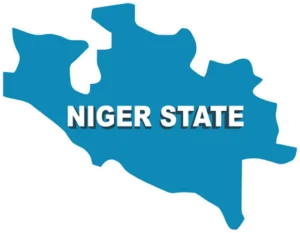New EFCC Leadership must be given breathing space with no interference
Corruption has become a household name in Nigeria. As the cankerworm grew to become a woe which appeared would leave the country in calamity of poverty, efforts were made to establish agencies such as the Economic and Financial Crimes Commission (EFCC) and the Independent Corrupt Practices and other related offences Commission (ICPC) to fight the scourge.
Although their creation as an Act of Parliament has created some sort of structural caution for corrupt individuals, particularly those in public offices who have been known for siphoning public funds, it is still indisputable that the rod of the agencies have not brought corruption to its feeble knees in the country. This remains a subject of a number of factors, part of which have been argued to include the legal system in the country and weaknesses of laws.
However, internal factors within the agencies themselves have been spotted. For instance, there have been cases of alleged corruption among officials of the anti graft agencies, up to the rank of the Executive Chairman. For instance, the removal of some past EFCC Chairmen have been linked to corruption.
Barely four months in, President Bola Tinubu suspended the former chairman of the anti-graft agency, Mr. Abdulrasheed Bawa. In his place, the President recently, on Thursday, October 12, appointed Ola Olukoyede to take over his place.
The Senate on Wednesday confirmed the nomination of Ola Olukoyede and Mohammed Hamajoda as the Chairman and Secretary of the Commission, respectively. During the screening and confirmation, Olukoyede highlighted that several of Nigeria’s institutions and systems had been overwhelmed by the financial crisis, assuring he would be committed to putting a stop to it without fear or favour and in accordance with the law. He added that he will prioritise prevention over enforcement.
The new EFCC boss is a lawyer with over 22 years of experience as a regulatory compliance consultant and specialist in fraud management and corporate intelligence. He previously served as the Chief of Staff to erstwhile EFCC chairman, Ibrahim Magu, from 2016-2018, before his promotion to the role of the Commission’s Secretary between 2018 and 2023. The 54-year-old Ikere-Ekiti native served as a member of the Fraud Advisory Panel, United Kingdom.
The anti graft agency no doubt has had successive leadership, yet has not achieved so much in relation to the depth of corruption in the Country which has grown before the eyes of the Commission. It is pertinent for the new EFCC leadership to work strategically to leave an indelible imprint in the agency’s record.
This would imply depth of investigation and prosecution of cases without bias or cloated interest. This will require that the agency do so not only proactively, but also with a disinterested approach no matter whose ox is gored. The era of prosecuting cases along party interest, bending towards the ruling party must be gone. It is therefore important that the new leadership does not bend as a mere political instrument for the government of the day, only serving as a political hunting mechanism to clampdown on opposition elements.
As corruption is known to cut across party lines, it is pertinent that the antigraft agency prosecutes cases genuinely, breaking barriers of political blocs, particularly not appearing as the voice of the ruling party in government as is popularly observed or believed over time.
The new EFCC chairman has a huge role to play to change the narratives of corruption in the Country. As he mentioned during screening that he would focus more on prevention than enforcement, it is pertinent that instruments on both architectures be blended and reinforced concertedly to achieve the purpose of the Commission under his watch.
It is pertinent also that the government of the day gives the Commission the breathing space and power of discretion to carry out its mandate without interference.




